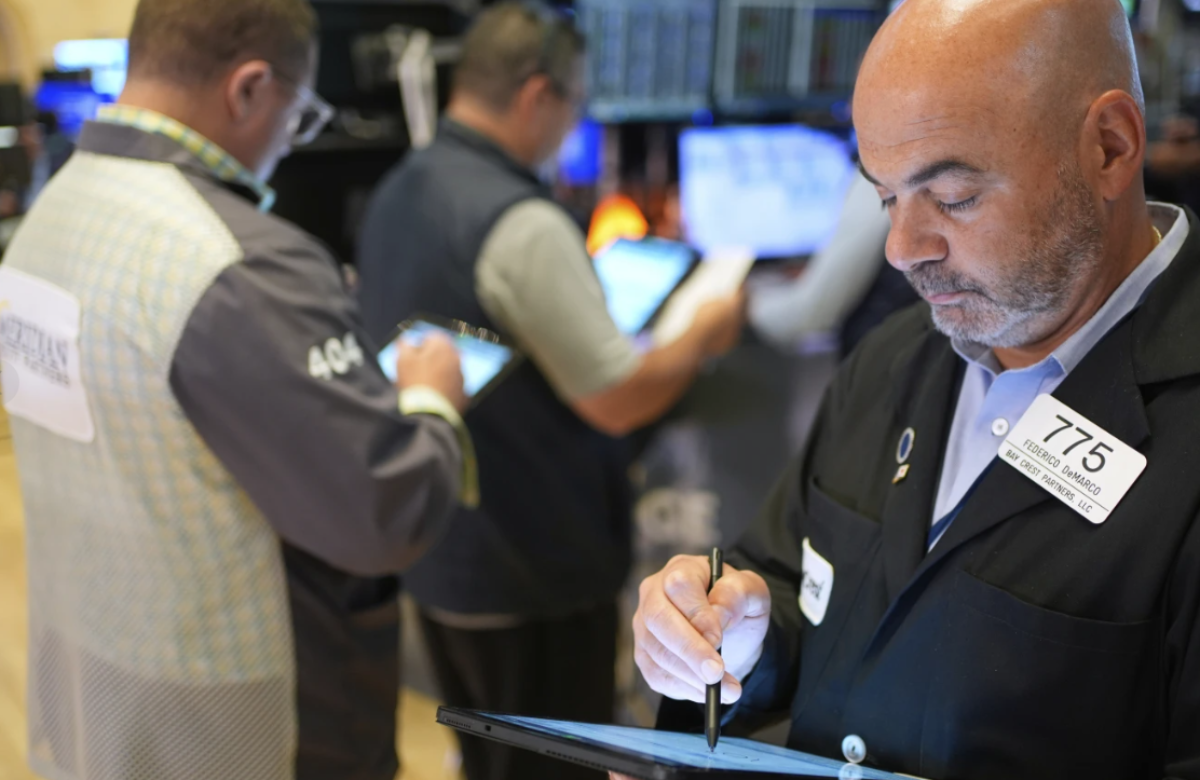U.S. stock indexes hovered near their record highs on Monday, as Wall Street continued to speculate that President Donald Trump may ultimately ease off on his newly proposed tariffs.
The S&P 500 inched up by 0.1%, staying within 0.3% of the all-time high it reached last Thursday. Meanwhile, the Dow Jones Industrial Average climbed 35 points (0.1%) by midmorning, and the Nasdaq composite rose by 0.2%.
Global stock markets saw mixed movements in their first session following Trump’s weekend announcement of 30% tariffs on imports from Mexico and the European Union. These tariffs are scheduled to go into effect on August 1, the same day Trump has set as the deadline for updated tariff rates on goods from Japan, South Korea, and more than a dozen other countries.
These latest delays give the U.S. administration more time to strike trade deals, potentially lowering tariffs and reducing the risk to global commerce. They also fuel speculation that Trump might retreat from imposing all of the proposed tariffs if they threaten to cause significant economic or market disruptions.
If enacted in full on August 1, the tariffs could heighten the risk of a recession. This scenario would not only impact American consumers but also increase the strain on the national debt, especially following substantial tax cuts that have already widened the fiscal deficit.
According to Ulrike Hoffmann-Burchardi, global head of equities at UBS Global Wealth Management, this round of tariff threats is likely a negotiation tactic designed to boost leverage, with expectations that the administration may eventually dial back its stance—particularly if market volatility spikes.
Brian Jacobsen, chief economist at Annex Wealth Management, added, “While the market doesn’t particularly favor tariff threats, it’s not reacting with panic either. Many of these tariff proposals come with conditions that allow room for adjustment.”
For now, continued uncertainty around tariffs could keep financial markets on edge. Several key events this week may add further volatility.
On Tuesday, a new inflation report is expected. Economists predict that the U.S. inflation rate for June will have climbed to 2.6%, up from 2.4% in May.
Also on the calendar are major corporate earnings reports. JPMorgan Chase and other top banks are due to release quarterly results on Tuesday, with Johnson & Johnson reporting Wednesday and PepsiCo following on Thursday.
On Monday, Fastenal, a distributor of industrial and construction products, posted stronger-than-expected quarterly profits. Its shares rose 2.7%, though the company noted that overall market demand remains sluggish.
Kenvue shares edged up 0.5% amid volatility, following news that CEO Thibaut Mongon will step down. The company, known for brands like Listerine and Band-Aid, is currently undergoing a strategic review aimed at simplifying its operations and portfolio, said board chairman Larry Merlo.
Waters Corporation experienced a steep decline, falling 11% after announcing a $17.5 billion merger with Becton, Dickinson and Co.’s biosciences and diagnostic unit.
In the bond market, Treasury yields held mostly steady. The yield on the 10-year Treasury note edged up to 4.44% from 4.43% at the end of last week.
In European markets, shares declined, with Germany’s DAX falling 0.5% and France’s CAC 40 slipping 0.4%. In contrast, South Korea’s stock market gained 0.8%, and Hong Kong rose 0.3%.
Chinese markets climbed after reports showed an increase in exports, as businesses rushed orders ahead of the August 1 tariff deadline, signaling positive momentum during a pause in the trade conflict with the U.S.
One of the most notable moves in financial markets came from cryptocurrencies, with Bitcoin continuing to hit record highs. This week marks “Crypto Week” in Washington, where Congress will evaluate several proposed laws aimed at making the U.S. a global hub for crypto innovation.
Also Read:
Wall Street Edges Higher, Airline Stocks Soar on Delta’s Positive Forecast














